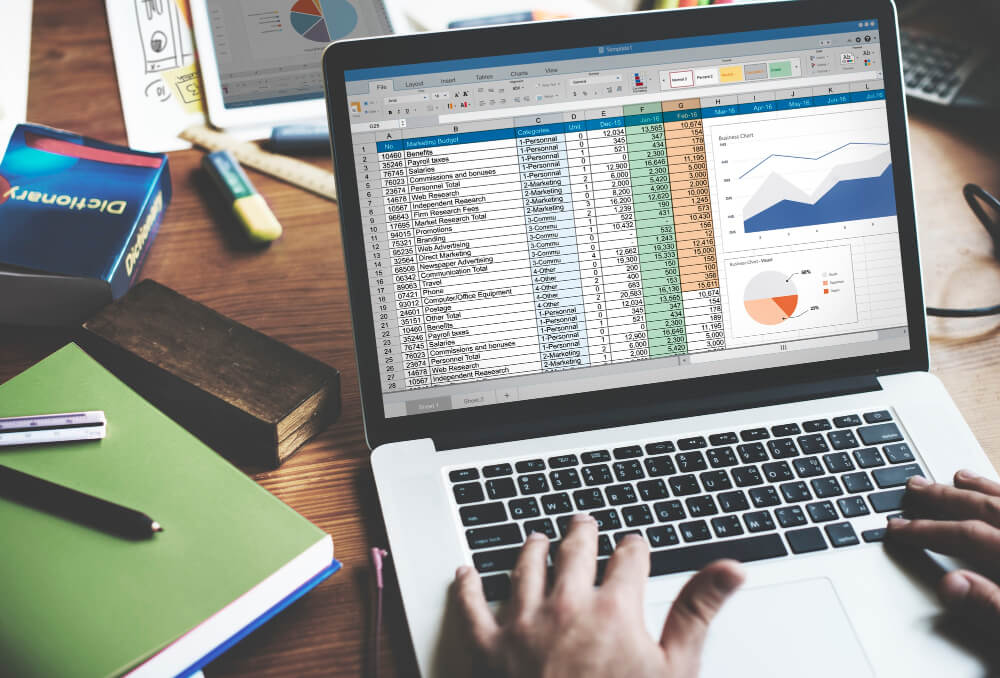How To Unarchive A Story On Instagram? A Step-by-Step Guide
Jan 28, 2026

Jan 28, 2026

Jan 27, 2026

Jan 24, 2026

Jan 23, 2026

Jan 22, 2026

Jan 22, 2026

Jan 21, 2026

Jan 21, 2026
Sorry, but nothing matched your search "". Please try again with some different keywords.


In this digital era, data is one of the most powerful assets for marketers. From search volumes to clicked interaction, it provides insights about how the digital campaign is performing.
So, naturally, marketers need data more than anyone else. But to simply collect data isn’t sufficient. It needs to be properly analyzed to get insightful reports.
That’s where analysis tools like Google Sheets come into play.
So, marketers can use the right spreadsheet to evaluate the data performance, track the KPIs, and efficiently manage the campaigns. But manually managing it can be time-consuming and overwhelming.
That’s why Google Sheets has integrated advanced AI technology to provide smarter and better data analysis.
So, if you are wondering how to use AI for Google Sheets, I have got you covered. In this blog, I am going to explore how the integrated AI in Google Sheets provides improved data analysis.
So, keep reading to know more!
Even though it sounds unnecessary, AI integrated into marketing analytics can immensely improve the marketing campaigns. So, it is kind of a necessity in this digital age.
Moreover, AI technology helps with automated reporting and predictive analytics. So, it is easier for marketers to make data-driven decisions about the campaigns.
In addition to this, AI for Google Sheets helps in transforming the raw data numbers into predictive insights. That is, it is easier to analyze the data without needing any technical expertise.
By integrating the AI technology in Google Sheets, it provides a dynamic data analysis tool. So, marketers can automate repetitive tasks, identify trends, and predict future results using the AI Google Sheets.
Much of the popularity of AI for Google Sheets lies in its provision of countless benefits, which include—
Firstly, AI in Google Sheets helps automate the repetitive tasks of data handling. For instance, it automates the entire process of data cleaning. So, it saves the time of the marketers.
Moreover, similar to the CRMs and Google Analytics, AI in Google Sheets can fix formatting issues, detect anomalies, find duplicate data entries, and handle missing values efficiently.
So, it provides an overall automated data editing tool.
Apart from data cleaning, it helps with creating accurate reports and visually engaging dashboards. So, it is easier to show the performance of the marketing campaigns from the raw data.
Also, the AI integration helps with analyzing the data fast, with accuracy, and creating insightful reports. So, marketers can get clean, data-driven reports in a jiffy.
Along with creating data-driven dashboards, the AI in Google Sheets provides predictive analytical reports. So, based on the historical performance, it can predict the future trends.
Moreover, it can track the real-time marketing campaign performance. So, from the data insights from real-time, it can predict the future possibilities with accuracy.
Additionally, the integrated AI technology uses natural language for user queries. So, users can simply use plain English to ask about the specific details on the reports.
That is, the users do not need to learn technical languages to explain their questions to the AI. So, it is simpler and easier to get the results instantly.
Generally, AI for Google Sheets can be used by multiple industries. So, here are some of its real-world applications—
SEO professionals can use AI functions in Google Sheets to analyze keyword data at scale. Instead of sorting through thousands of search terms manually, AI can quickly identify top opportunities, flag underperforming pages, and highlight content gaps.
With data pulled directly from platforms like Facebook Ads or LinkedIn Campaign Manager, AI-powered Sheets can summarize campaign performance, spot trends in audience engagement, and even recommend budget reallocations for better ROI.
AI models can forecast the expected performance of different ad variations, helping marketers decide where to allocate budget. For example, by analyzing historical cost-per-click and conversion data, the AI can suggest which keywords or ad groups are likely to deliver the best return.
Marketers can also use AI-driven Sheets to cluster customer data and identify segments that behave differently. Instead of manually slicing data, AI can group audiences by purchase behavior, engagement levels, or demographics, making it easier to design personalized campaigns.
The good news is that adopting AI in Google Sheets doesn’t require advanced programming skills. Many third-party tools and add-ons integrate seamlessly with Sheets to bring AI functionality into play.
Some ways marketers are getting started include:
Exploring solutions such as ai google sheets can help marketers save time, reduce errors, and uncover opportunities that might be hidden in raw data.
Although AI in Google Sheets provides massive benefits, it comes with a couple of challenges and limitations. So, marketers need to keep a few things in consideration while using it—
So, by keeping these few things in mind, anyone can use the AI for Google Sheets effectively.
Given that the digital space of marketing is constantly evolving, AI for Google Sheets will naturally grow. Moreover, it will help marketers to better detect the patterns, trends, and performance metrics.
So, they can optimize and modify the campaign strategies based on the insights from the reports. Making the process simple and efficient.
Additionally, AI integration into Google Sheets helps in better data analysis. So, marketers can focus more on building strategic campaigns that drive audience engagement.
The future of marketing belongs to those who can harness data effectively. AI in Google Sheets is a practical, accessible way for marketers to bridge the gap between overwhelming datasets and actionable insights. From automating tedious tasks to predicting campaign outcomes, AI transforms Sheets into a powerful decision-making tool.
For professionals managing multiple campaigns, budgets, and audiences, integrating solutions like ai google sheets can be the difference between working harder and working smarter. By leveraging these tools, marketers can save time, improve accuracy, and make better decisions that drive measurable results.
Barsha is a seasoned digital marketing writer with a focus on SEO, content marketing, and conversion-driven copy. With 7 years of experience in crafting high-performing content for startups, agencies, and established brands, Barsha brings strategic insight and storytelling together to drive online growth. When not writing, Barsha spends time obsessing over conspiracy theories, the latest Google algorithm changes, and content trends.
View all Posts

